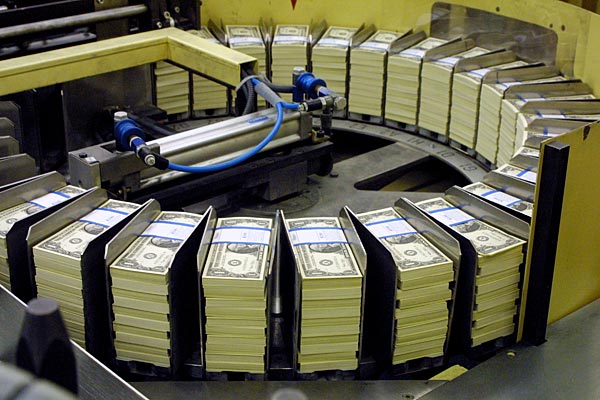by Kristina Hooper, Allianz Global Investors
Many political pundits are struggling to provide answers for Donald Trump's surprising election victory. Kristina Hooper, however, says it may be as simple as an over-reliance on monetary policy, which has resulted in income as well as asset inequality.
Brexit as foreshadow
[Tweet "Financial repression was arguably an important catalyst for the election outcome"]The US presidential election is finally over, although the outcome came as a surprise to many. However, we have warned for some time that there was the potential for a Brexit-like ending to this election season for several reasons. One obvious reason that we have mentioned in the past is that some people are not comfortable sharing their views with pollsters if those views are perceived to be unpopular. In addition, many polls seem to have been "designed" to find an answer which the media wanted to hear.
But we have also documented for years the negative impact created by financial repression, which arguably was an important catalyst for the election outcome. As we have said before, monetary policy is a blunt instrument and was essentially the only tool used to stimulate the economic recovery that the US has experienced since the Great Recession. No surprise that this recovery has been so weak—and that so many Americans did not participate in it.
Asset inequality
In recent years, we have heard the term "income inequality" figure heavily into the national discourse on the economy. However, we would argue that another issue deserves as much attention if not more—and that is "asset inequality." Financial repression has played a pivotal role in this as well.
Incredibly accommodative monetary policy has caused assets such as stocks and homes to increase in value. Traditional "risk assets" were rendered less risky because of easy money. The more exposure someone had to these assets, the more their net worth grew as financial repression continued for years. However, if one had little or no exposure to these assets, they didn’t participate in this building of net worth.
When 401ks become '201ks'
It's understandable that many Americans had little or no exposure to risk assets. After all, these assets experienced a large drop in value during the Global Financial Crisis. Many investors who saw their 401ks become "201ks" decided they couldn't stomach any more volatility and rotated out of stocks and into what were perceived to be "safer" assets, such as cash and Treasuries.
[Tweet "The Fed, through financial repression, had distorted the risk/reward profiles of many asset classes"]But the Fed, through financial repression, had reshaped the risk and reward profiles of these asset classes too. Back when I was in business school in the late 1990s, my finance professor referred to Treasuries as as "risk-free return;" that was a common moniker back then. But the Fed changed all that with a zero fed funds rate and quantitative easing—what was "risk-free return" was essentially rendered "return-free risk."
[Tweet "A zero fed funds rate and quantitative easing transformed 'risk-free return' into 'return-free risk'"]But extraordinarily accommodative monetary policy also played a role in income inequality. Many older Americans have historically relied on the income they received from their bank, money market accounts and core bond holdings to help pay their bills. However, with rates having fallen so much, they are receiving a fraction of the income they once received. This has helped contribute to the income inequality that has grown in recent years in the US and to the rising savings rate as older members of society are being forced to save more.
Stocks surge post-election
Given these contexts, it's no wonder the US stock market rallied substantially in the days following the election. The S&P 500 and Nasdaq indices each returned over 3% over the past week, but the real winner was small-cap stocks as the Russell 2000 surged an astonishing 10.27% over the same period. What's more, Treasury yields have risen dramatically in the past week on expectations of higher inflation and economic growth.
[Tweet "The promise of tax cuts and infrastructure spending has markets rejoicing after years of gov't gridlock"]Investors apparently like the idea, at least for now, of a legislative and executive branch both controlled by the same party. This may be especially so with an incoming president who has promised tax cuts and spending in areas like infrastructure, which has markets rejoicing after years of extreme government gridlock that has prevented any type of real fiscal stimulus.
Looking ahead, we'll want to pay close attention to President-elect Trump's plans for his administration, as we seek to gain a better sense of what may be accomplished and how it might impact the economy.
The Upshot is for financial professionals only.
*****
Kristina Hooper is the US Investment Strategist and Head of US Capital Markets Research & Strategy for Allianz Global Investors. She has a B.A. from Wellesley College, a J.D. from Pace Law, a master's degree from Cornell University and an M.B.A. in finance from NYU, where she was a teaching fellow in macroeconomics.
Copyright © Allianz Global Investors














